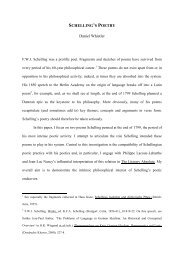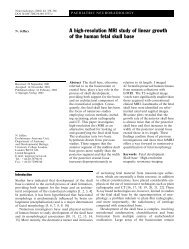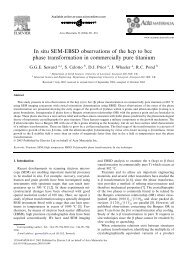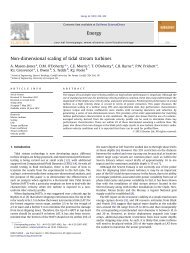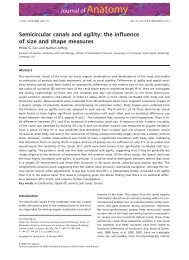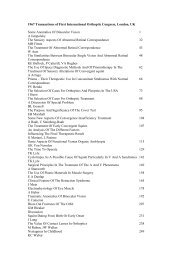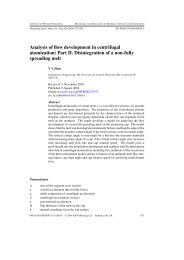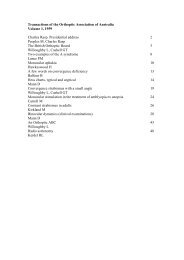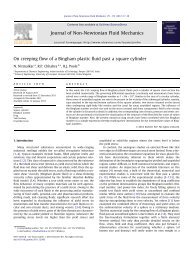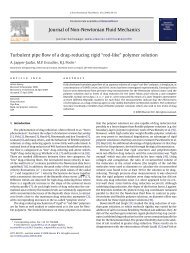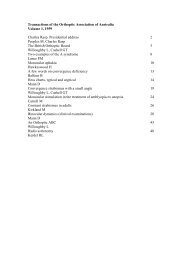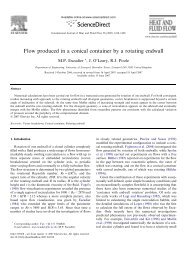The Discipline of Pious Reason: Goethe, Herder, Kant Daniel ...
The Discipline of Pious Reason: Goethe, Herder, Kant Daniel ...
The Discipline of Pious Reason: Goethe, Herder, Kant Daniel ...
You also want an ePaper? Increase the reach of your titles
YUMPU automatically turns print PDFs into web optimized ePapers that Google loves.
alternative ideals than union can ‘the most dangerous dream’ <strong>of</strong> infinite oneness be<br />
avoided. Neoplatonic piety and the increasing engulfment <strong>of</strong> God on which it is<br />
premised should be thwarted, in favour <strong>of</strong> keeping God at a distance. Humanity<br />
should strive for an artificial and improper relation to the deity which does not<br />
succumb to natural attraction. Moreover, by means <strong>of</strong> his ethics <strong>of</strong> friendship, <strong>Herder</strong><br />
claims to have explained the mystery <strong>of</strong> individuation Hemsterhuis was unable to<br />
solve: individual existence is necessary for the experience <strong>of</strong> a different, more<br />
valuable relation than that which unification brings. Individuation is necessary for<br />
friendship, and so <strong>Herder</strong> concludes, ‘<strong>The</strong> supreme good that God could grant all<br />
creatures was and is individual existence.’ (ibid, 4:423-4; p. 120)<br />
[B] ‘Ethical Neo-Spinozism’<br />
<strong>The</strong> dispute between the superiority <strong>of</strong> friendship and love is, as I have mentioned, <strong>of</strong><br />
classical origin and was preserved in the humanist tradition. However, surprisingly, it<br />
is not on this tradition that <strong>Herder</strong> draws (at least explicitly); instead, Liebe und<br />
Selbstheit is littered with allusions to Spinoza’s Ethics. For example, <strong>Herder</strong> writes,<br />
By giving and acting, rather than receiving and being passive, our existence<br />
necessarily will become ever freer and more effective from stage to stage, our<br />
pleasure will become less damaging and destructive, and we will learn to taste<br />
ever more joy. (ibid, 4:423; p. 120)<br />
This juxtaposition <strong>of</strong> joy, activity, pleasure and freedom is extremely Spinozist. For<br />
example, Spinoza writes, ‘By joy, therefore, I shall understand… that passion by<br />
which the mind passes to a greater perfection’ (1994, IIIP11D), and by ‘greater



